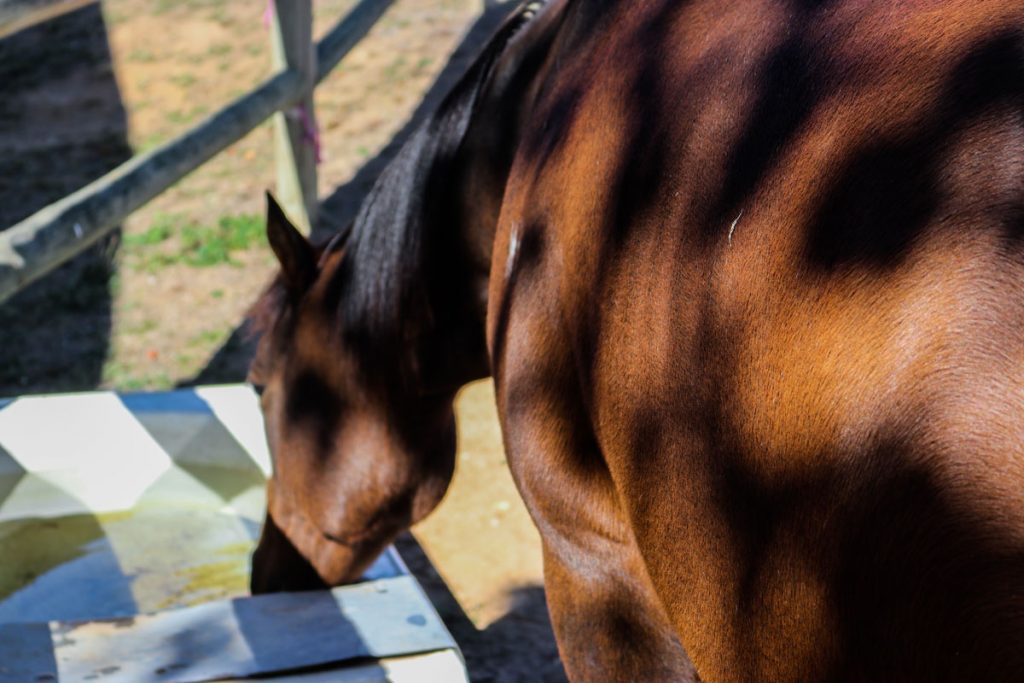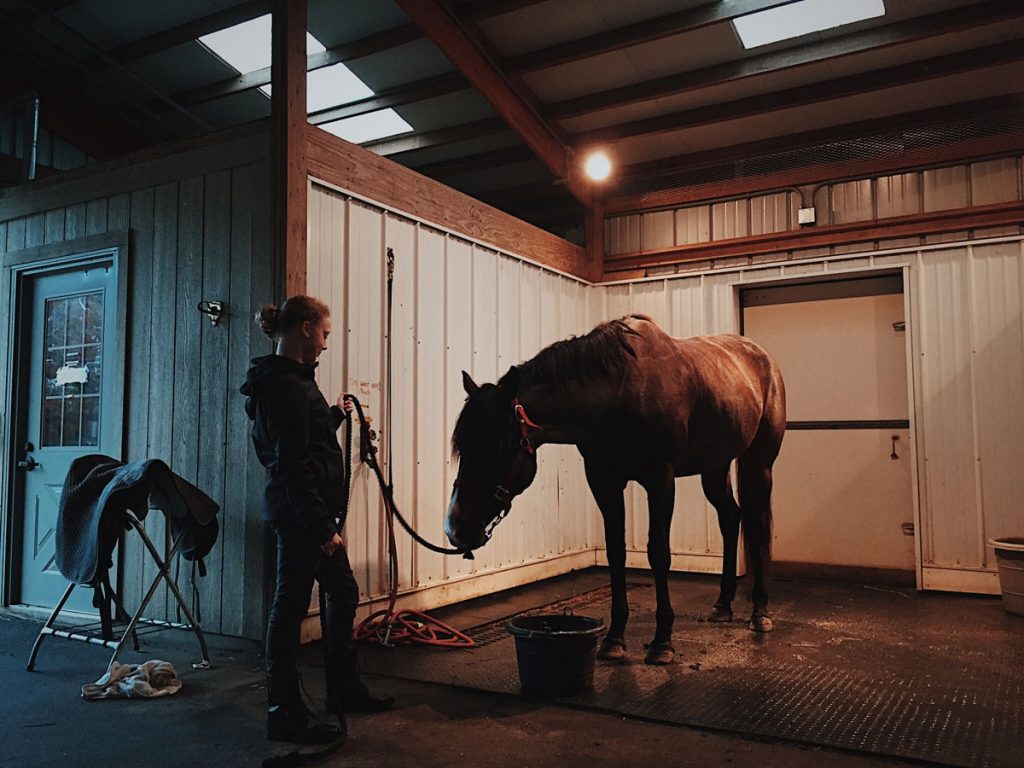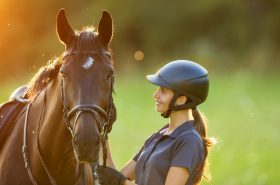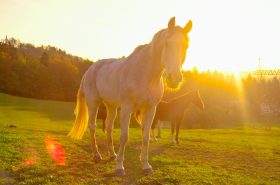High temperatures can be dangerous to your horse’s health!
While there’s a lot to love about the long, sunny days of summer, you have to remind yourself that this weather can be hard on your horse. It’s important to take a few precautions and keep a close on your horse when temperatures begin to soar. You can still enjoy riding on relatively hot days, but make sure to watch out for heat stress. Follow these tips for success!
What is Heat Stress?
Heat stress or heat exhaustion is a loss of fluids or electrolytes. It usually occurs during exercise and when temperatures are high. Especially in humid weather, the horse may struggle to sweat quickly enough. Sweating, also known as evaporative cooling, helps to expel muscular heat from the body. An imbalancement can cause your horse to dehydrate over an extended time.
Be Aware of these Symptoms
If you’re worried your horse may be experiencing heat stress, then keep an eye on their symptoms. Contact your veterinarian and discuss some of the things you are noticing.
- Dehydration
- High temperature (over 106 degrees F)
- Heart rate is over 60 beats per minute
- High respiratory rate
- Dark urine
- Dull expression
- Dark/ discolored gums
- Diminished intestinal sounds
- Depressed
- Skin doesn’t flatten within 6 seconds of being pinched
When left untreated, this horse may begin to display neurologic signs. This can include seizures or passing out. Ultimately, damage to the muscles, heart, and kidneys may be experienced in extreme situations.
Those at Risk
Hot weather isn’t the only factor to blame. Some horses are more likely to experience heat stress than others. An overweight horse with layers of fat will struggle to dissipate body heat. A fit horse has improved blood flow within the skin and better circulation of oxygen in the tissues. Their slender bodies have replaced fat with muscle.
You should also consider the intensity of the workout. A horse ridden at a speed too fast for their condition level will quickly overheat. Furthermore jumping, galloping, and riding over mountainous terrain can cause a horse to experience heat exhaustion.
In the summer, you should be very careful when transporting your horse in an enclosed trailer. Without airflow, your horse may dehydrate quicker than normal. Be aware that when transporting to new climates your horse will need at least three weeks to acclimate to the higher temperatures.
Follow these Cooling Tips
Spend some time walking your horse after a hot ride. This should be done out of the saddle with the equipment removed. Afterwards, bathe their head, neck, and legs with cool water from a hose or sponge. As the water warms on the body, scrape it off and reapply cool water. The skin will eventually feel cool to the touch. Their respiratory rate should decrease as the temperature of their body goes down.
Your horse may also drink two to three gallons of water within the first 15 minutes following exercise (unless they were galloped hard). A fan or shady spot can further aid in the cooling process. In extreme situations, the horse may need to be soaked with the hose or buckets of water to cool the internal organs.
If your horse has experienced an episode of heat stress, you’ll want to eliminate exercise for three to five days. Keep them in a cool, well-ventilated area and watch them carefully for a few days. They’re more likely to experience it again once it happens.
Most horses can adjust to the warmer temperatures without much trouble. You should monitor your horse carefully though, especially if they’re being exercised. Don’t forget to offer plenty of water and shade. You and your horse can enjoy summer with the proper precautions!
**
Emily Fought discovered her passion for horses early on in life. When she isn’t writing about them, you can find her in the barn riding. Although Emily’s background is in dressage, she enjoys cross-training and is an avid trail rider. She resides in Northwestern Pennsylvania with her husband and small dog. Together, they own and operate Humblewood Farm.






